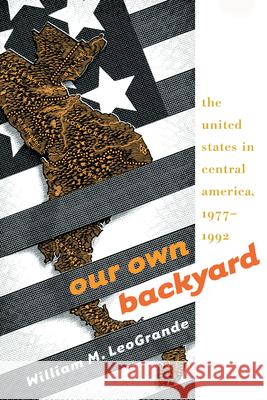Our Own Backyard: The United States in Central America, 1977-1992 » książka
Our Own Backyard: The United States in Central America, 1977-1992
ISBN-13: 9780807848579 / Angielski / Miękka / 2000 / 792 str.
In this remarkable and engaging book, William LeoGrande offers the first comprehensive history of U.S. foreign policy toward Central America in the waning years of the Cold War. From the overthrow of the Somoza dynasty in Nicaragua and the outbreak of El Salvador's civil war in the late 1970s to the final regional peace settlements negotiated a decade later, he chronicles the dramatic struggles--in Washington and Central America--that shaped the region's destiny.
For good or ill, LeoGrande argues, Central America's fate hinged on decisions that were subject to intense struggles among, and within, Congress, the CIA, the Pentagon, the State Department, and the White House--decisions over which Central Americans themselves had little influence. Like the domestic turmoil unleashed by Vietnam, he says, the struggle over Central America was so divisive that it damaged the fabric of democratic politics at home. It inflamed the tug-of-war between Congress and the executive branch over control of foreign policy and ultimately led to the Iran-contra affair, the nation's most serious political crisis since Watergate.
"A masterly and comprehensive chronicle of U.S. policy toward Central America in the 1980s.--Atlantic Monthly
" LeoGrande] has risen above partisanship to produce a book central to any historical evaluation of those troubled times.--Foreign Affairs
" LeoGrande] takes the reader confidently through a complex, often tortuous story. . . . Throughout, the analysis is thorough and clear.--New York Times Book Review
"Full of unorthodox, original perspectives, LeoGrande's clearly written, magisterial study holds timely post-Cold War lessons that transcend the Central American setting.--Publishers Weekly
Illuminating one of the most controversial chapters in the history of American foreign policy, William LeoGrande presents a comprehensive account of U.S. involvement in Central America during the 1980s. From the military clashes fought on the ground in Central America to the bitter political discord that wrenched apart Washington, he chronicles the dramatic struggles that characterized what he calls "the last battle of the Cold War."











